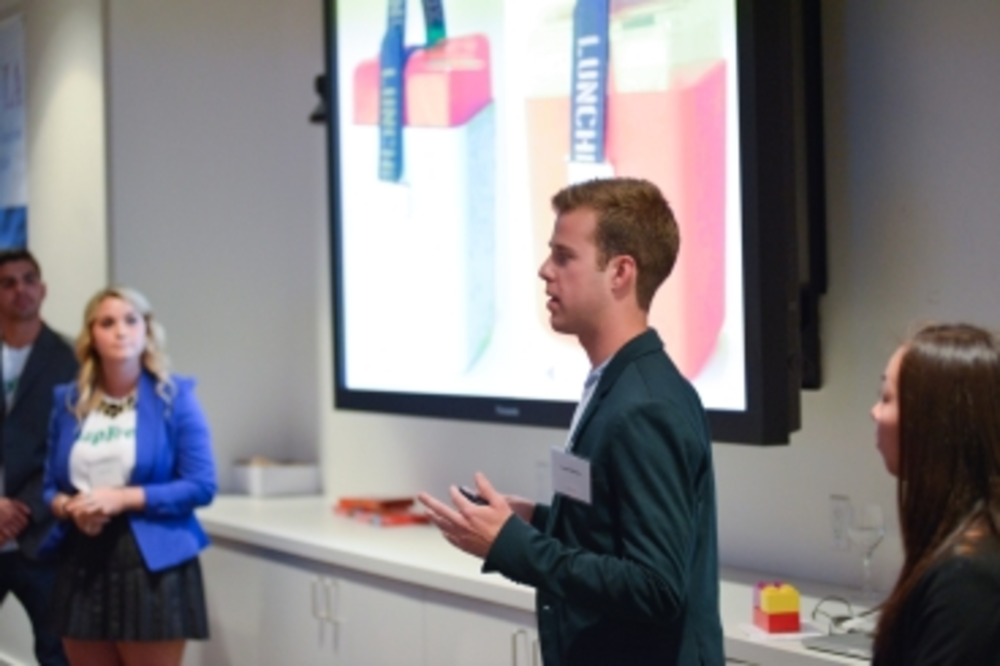My college roommate and I used to joke about the paradox of higher education: Four years of dying your hair blue and taking classes on “The Phenomenology of Zombie Cinema” followed by the parentally funded purchase of tasteful black skirt suits to be worn to uncomfortable interviews for jobs you don’t really want during which you try and spin the three hours a week of work study you did at the school cafeteria into something that sounds remotely like relevant job experience.
But it doesn’t have to be like that. No one said the words “college,” “fun,” and “practical” were mutually exclusive—the problem lies with the tone and the content of the courses being offered. Such is especially the case in the marketing space, where most programs haven’t kept pace with the changing digital landscape.
“Often, people come into advertising or marketing with English degrees or degrees in art history, and that’s OK. But even if they’ve had an internship or two, most of them don’t understand how the industry really works,” says Eric Johnson, founder president of creative agency Ignited. “And then there were the people graduating with an actual advertising or marketing degree who would come into job interviews with the four Ps of marketing they’d learned from a textbook written in 1982 that have no relevance to how we do work today.”
Zing.
It was that state of affairs that led Johnson and his cohorts at marketing community nonprofit thinkLA to join forces with the business school at Loyola Marymount University (LMU) in central LA and found the newly minted M-School, LA’s first advertising school. The curriculum at M-School is keenly focused on digital marketing, with roll-up-your-sleeves sessions on everything from data and analytics to search and social media. The school’s location, near the heart of LA’s ad community, makes it handy to get top-level people from agencies, media companies, and tech vendors, including Google and Yahoo, to come in and speak. It’s also easy to bring students into the workplace to give them a taste of how things really go down—because having someone from Google give a talk is one thing, but going on a field trip to the Google campus in Venice is another thing altogether.
“The thought is to give [students] some real sense of how these people work,” Johnson says. “What do they look like, smell like, how do they spend their time—because the people who work at these places are the people these students want to be.”
Over the course of the semester, students also work in teams to develop a final project, kind of like a hands-on thesis, which they present to the class at the close of term. The assignment this year is to re-imagine the TV dinner for the modern age. Last year the students were given spaghetti strainers and told to make a completely new product out of them. One group created a special bar stool with a colander strapped to the bottom of the cushion so patrons could flip up the seat and empty their phone, keys, and wallet into it to keep their pockets from bulging uncomfortably while they sat.
Not only did the students have to do the branding and develop the product concept, they had to do the P&L, packaging, creative, media vehicles, strategy, marketing plan—the works.
“We encourage a little bit of entrepreneurship and force them to have to think about things and not rely on the heritage of a brand, like, ‘Make a new campaign for Nike,’” says Johnson. “We wanted to push these kids to come up with something essentially out of whole cloth.”
Since the school’s launch last year, 57 LMU undergrads have taken at least one of the M-School “New World of Branding and Advertising” or “All Things Digital” courses, and approximately 60% of those have been offered either internships or full-time positions in the industry as a result. Not too shabby considering how competitive the field is. As Michael Zwick, LMU class of 2013, put it: “I got an internship that will turn into a full job after training because of my experience in the M-School; what I learned throughout the course is what sold me in the interview.” His parents hardly had time to frame his degree before he started working as a campaign developer and manager at online ad firm Wpromote.
The new world of digital marketing calls for a workforce with digital skills and the cred to back them up, Johnson asserts.
“There’s no company out there any more that goes to its agency and says, ‘You know what guys? Let’s just have one big campaign this year. Show us some work in, say, May, and we’ll put it into effect around September,” Johnson says. “Marketing is a fluid, fast-moving space and we need people with the mental agility to do this kind of work and who know how to play well with others.”








